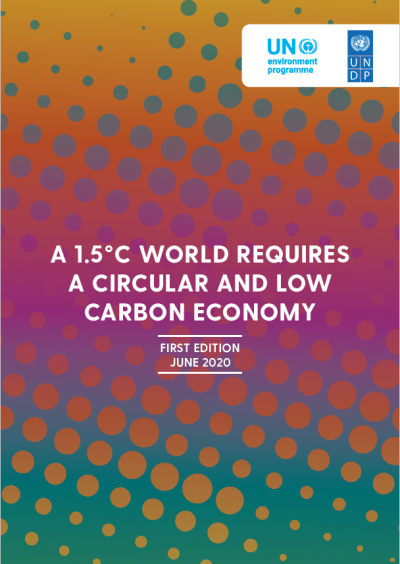 UNDP and UN environment launched a joint article stating that a 1.5°C world requires a circular and low carbon economy. The publication marks the start of a new collaboration between both institutes on integrating circular economy principles in climate initiatives.
UNDP and UN environment launched a joint article stating that a 1.5°C world requires a circular and low carbon economy. The publication marks the start of a new collaboration between both institutes on integrating circular economy principles in climate initiatives.
UNDP and UN Environment argue that it is essential to make our economies more circular, not only to integrate economic, social and environmental objectives, but also to grasp the potential for substantial and accelerated reductions in greenouse gas emissions across all sectors.
This requires altering production methods, imrpoving product durability and ramp up reuse, recycling and embed behavioural change in economic and development policy frameworks. By ensuring that circular economy approaches are part of countries’ Nationally Determined Contributions (NDCs) – we can harness the huge potential that more efficient and cleaner use of resources has to deliver deeper cuts in greenhouse gas (GHG) emissions. Next to this, the transiuton to a circular eocnomy will deliver benefits lik new job creation and creating new formal or informal economic activity based on recovered waste streams and used products.
The article goes into more detail on the circular mitigation opportunity in the built environment, industrial sectors like plastics, textiles and electronics, tourism, food value chain and cities.
Shifting Paradigms was one of the co-authors of the article.
Client: unpaid contribution
Partners: UNDP and UN Environment
2020



